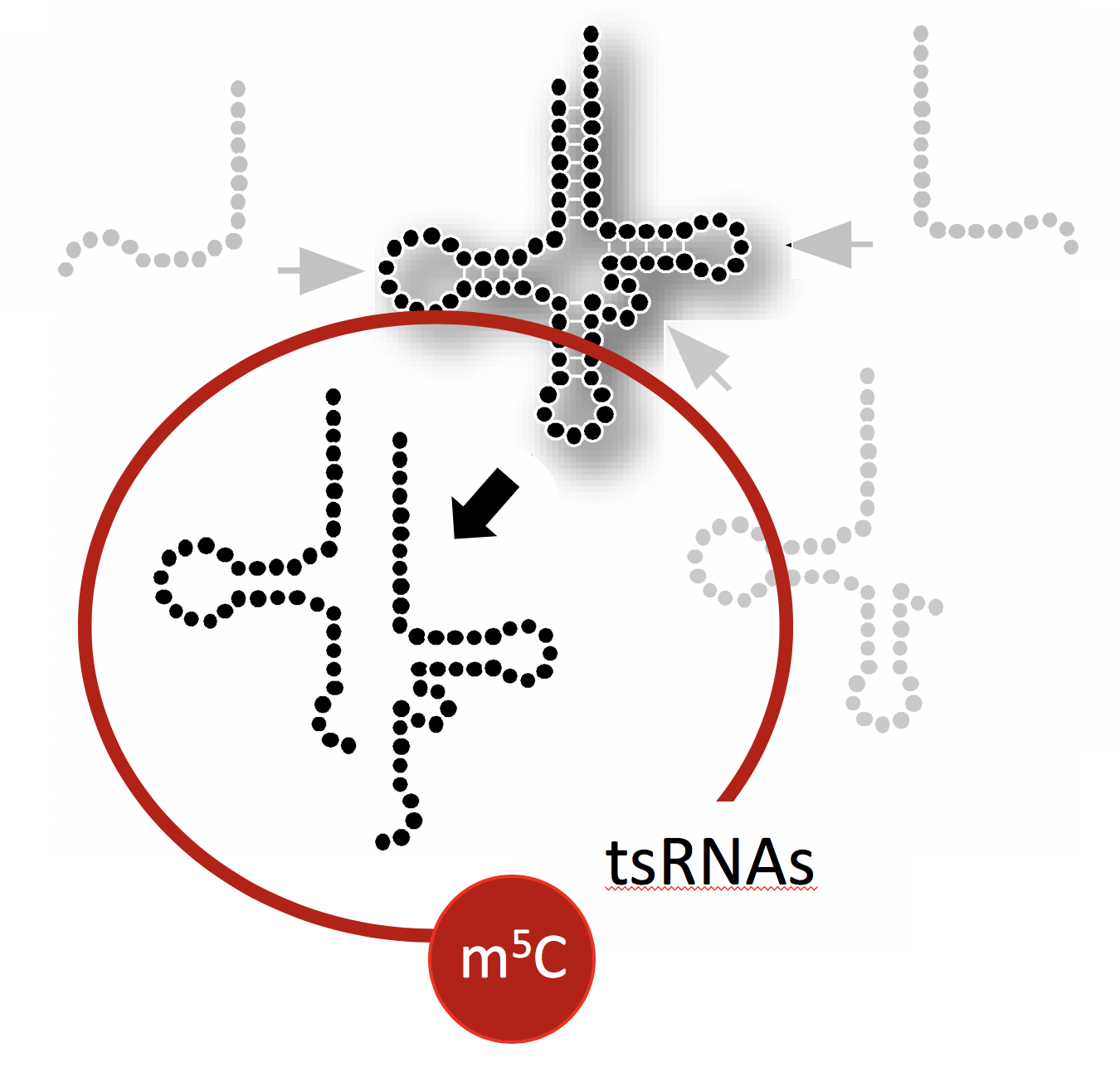
Research Focus
Transfer RNAs (tRNAs) are indispensable components of the protein translation machinery. Rather recently, stress-induced and nuclease-mediated tRNA fragmentation has been discovered as an evolutionarily conserved phenomenon resulting in tRNA-derived small RNAs (tsRNAs) with various functions. It is currently unclear how exactly these small RNAs are produced from parental tRNAs. Since tRNAs are highly structured molecules, it is likely that dedicated enzymes unwind, stabilize and degrade particular tsRNAs.
Main Objectives
The group aims to understand the biology of the enzymes that attach methyl groups (forming m5C) to tRNAs and the impact of m5C on the function of these tRNAs, and their stress-mediated degradation products. Specifically, we are interested in the potential for tRNA-derived small RNAs (tsRNAs) in the regulation of gene expression under environmental impact such as stress conditions.
Content of Research
Our group applies genetic and biochemical tools in human cell culture and the model organism Drosophila melanogaster to address the following questions:
- How does m5C impact tRNA stability and function?
- How many tsRNAs are needed to exert biological impact?
- Where do tsRNAs localize in cells?
- Can tsRNAs be developed into biomarkers for disease states?
